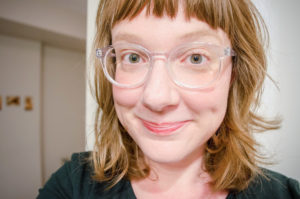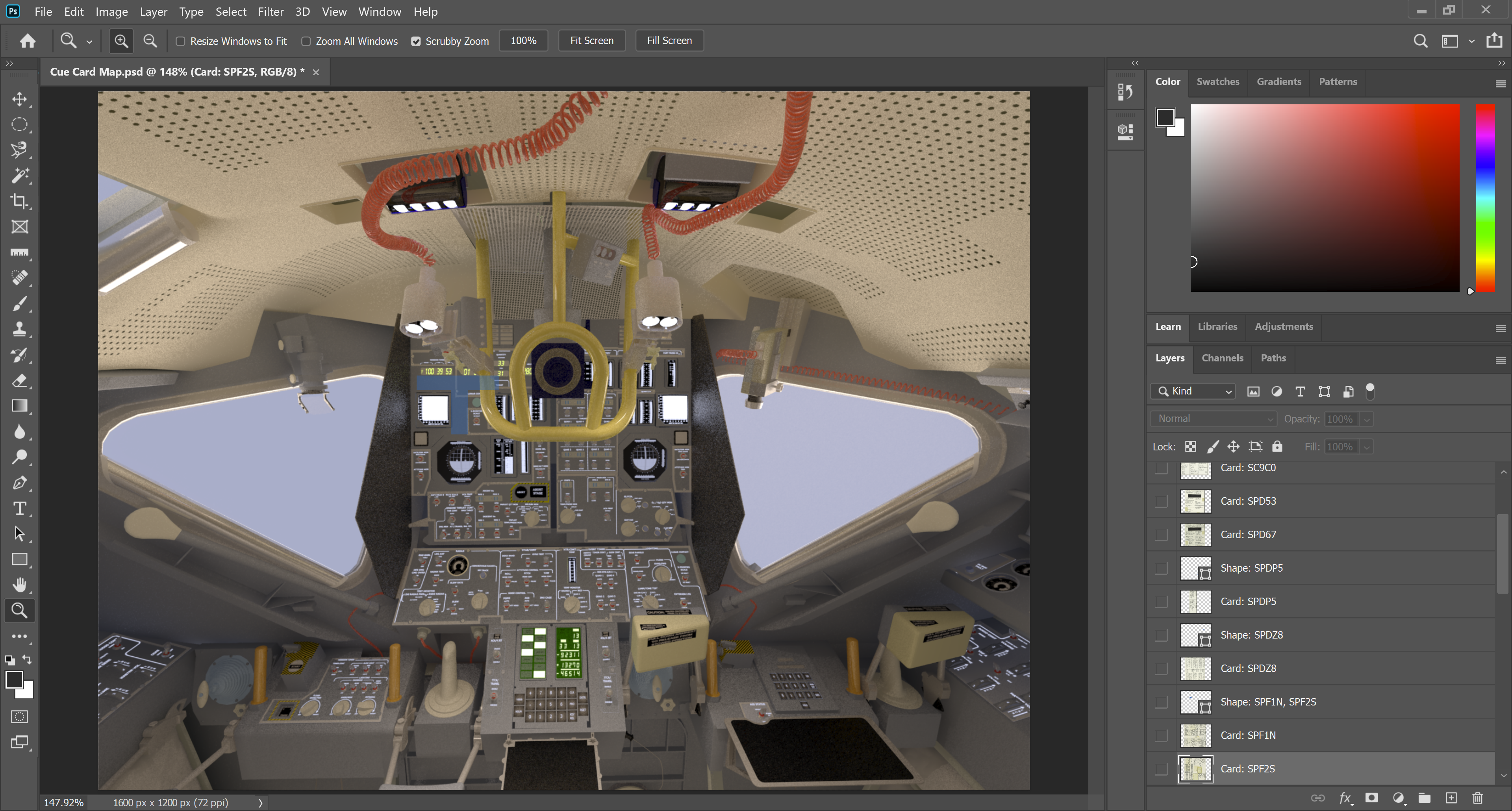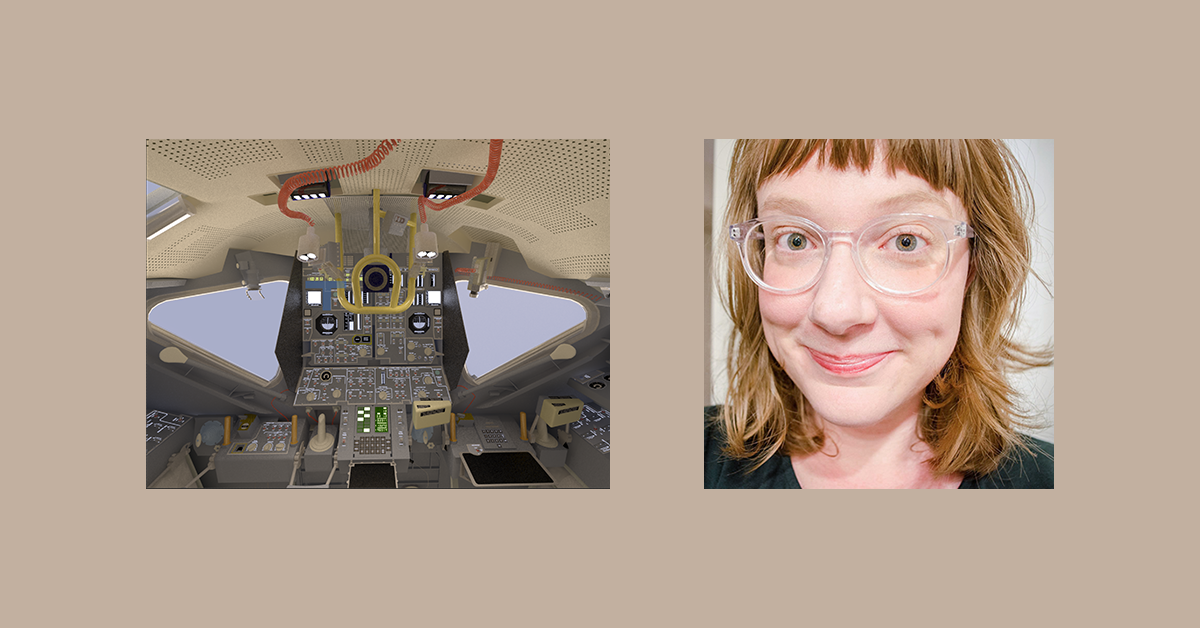This is the first post in an ongoing series of publications featuring the reflections of graduate students who have worked with the Emory Center for Digital Scholarship through an ECDS graduate fellowship and/or Woodruff/ECDS graduate fellowship.
by Sarah Warren

I think that it is fair to say that, when I accepted the David R. Scott Fellowship in 2019, we all envisioned this project proceeding very differently. My initial meetings with project members—in the luminous ECDS “Aquarium,” a wonderful coming-together space of bodies and ideas—were shaped by vibrant conversations emerging from diverse perspectives and skills converging enthusiastically on a shared vision. Today, these intermingling bodies and shared spaces appear to us as sites of risk; COVID-19 has changed the terms by which we can engage each other. Yet the shared vision for the Apollo 15 Hub remains as strong as ever—and it shows in our work. I am so proud to be part of such a unique and important project: capturing one of humankind’s most dramatic scientific achievements through an immersive exhibit of exclusive Apollo 15 materials, as conceived by some of the most skilled digital scholars and space enthusiasts out there. And, of course, the support of Colonel David R. Scott himself.
When I was on-boarded for this project, my understanding of its exact nature and scope was somewhat impressionistic. I knew that we would be constructing a user-focused public site featuring primary materials, and that the mission materials were once in space. I had experience designing web sites, training in online instruction, a deep pedagogical commitment to digital scholarship, and I had watched every episode of Star Trek: The Original Series during high school. I figured that I would worry about forging explicit connections to philosophy of nature later. And I am so glad that I took that leap of faith. The Apollo 15 Hub has been invaluable not only in supporting and enriching my digital interests and skill sets, introducing me to a host of new technologies and helping me see how they might enhance (rather than distract from) a learning environment, but it has also instilled in me a deep sense of how relevant my philosophical training is to extra-disciplinary work.
Research on the historical and technological aspects of the Apollo 15 mission, while very different from the study of philosophical argumentation, requires the same careful, contextually-aware, detail-oriented approach. One of my first tasks in helping to create the Hub was work in visual design that required significant engagement with images and texts mined from official NASA archives: mission transcripts, orbital photography, lunar specimen identification. I became so intimately familiar with the sinuous shape of Hadley Rille, a winding chasm in the lunar surface, that I was able to note minor inconsistencies within NASA labeling of orbital lunar photography. Working alongside a colleague in developing a 3D simulation of the lunar landing, I was able to intersect my knowledge of Apollo procedures (e.g. the presence of cuff checklists on spacesuits) with my phenomenological training, which—in its commitment to describing the immediate dimensions of lived experience—was helpful in lending a kind of verisimilitude to the simulation. And this research and reflection provoked a constant influx of fascinating new details about the inner workings of NASA and its Apollo crews. I learned that, inside the cramped confines of the spacecraft, astronauts relied on a series of radically condensed “cue cards” to act as “cheat sheets” for remembering all possible permutations of mission operations, contingent upon how the spacecraft fared in its journey. These cue cards were cut to fit around various control panel knobs and buttons, like a jigsaw puzzle, and amassing, interpreting, and translating documents that display and diagram various iterations of these cards was a major project in depicting the interior of the Apollo Lunar Module in 3D. These tasks and all that they entailed—from HTML to Omeka, Audacity to Photoshop—are but a sliver of our entire project.

Of course, the question of ethics—to some, the breadbasket of philosophy—was never far from my mind or those of my colleagues, and reflects the deep commitment that ECDS maintains to digital scholarship as a form of inclusivity. When the Apollo 15 Hub is complete, it will feature film footage processed and made available by ECDS, and each of these videos will have been carefully closed captioned. Equally important as the question “how does this element enhance the overall project?” is the question “who can benefit from this enhancement, and how can we do better?”
In a time when we all are feeling very far apart, the Apollo 15 Hub has been doing its part to bring a little bit of the sky within reach of scholars and the general public alike. The fact that it has been able to continue so successfully despite the challenges posed by the current pandemic speaks to the importance of digital scholarship. It is a privilege to have access to the advanced technology and expertise of ECDS; my aim has been to use this privilege to create an accessible educational space that invites in and pedagogically supports the experience of a diverse audience of space enthusiasts. As we move forward through this crisis, I am looking forward to seeing how the Apollo 15 Hub makes its distinctive contribution to a growing body of digital material—and, in so doing, makes education in a time of social distancing a little bit less distant.
